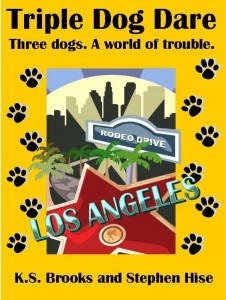 Ladies and gentlemen, it is time once again for the Indie News Beat. We take the flour and water of facts, knead the dough of truth, and bake up a tasty loaf of information just for you.
Ladies and gentlemen, it is time once again for the Indie News Beat. We take the flour and water of facts, knead the dough of truth, and bake up a tasty loaf of information just for you.
Ace reporter Chris James could not be with us. He has been taken hostage by a group of Amazons. Actually, they freed him months ago, but he refuses to leave. We soldier on here at Indies Unlimited.
The L.A.Times has discovered that a lot of people lie about having read the great classics of literature. It turns out, a lot of them just watched the movie instead. I cannot say I am surprised. The article includes the top 10 books people fake having read. In the number one slot is 1984, by George Orwell. Ironically, that is the only one on the list I actually read. I actually liked it. Go figure. There is no word yet on how many people falsely claim to read the L.A. Times.
But perhaps society has just moved beyond these dusty old tomes. Nowadays, we’re a texting, tweeting, live on the razor’s edge, breakneck, no time for nuance kind of society. Thankfully,someone has had the forethought to distill the great classics down to 140 character tweetable summaries.
One of the hallmarks of the digital revolution is the freedom it brings to writers in determining the best length for the stories they tell. Book length is more or less hard-wired into dead tree publishing. Production of a digital book does not have the kinds of fixed overhead that print has. That opens a lot of doors for creativity. The Guardian sees the Kindle Singles program as the signal event in this part of the revolution.
It’s just not possible to talk about what’s new in the world of publishing without talking a lot about Amazon. Part of the reason for that is Amazon innovates while everybody else equivocates. In yet another example, Amazon’s Matchbook allows customers to buy discounted digital versions of print books they’d previously bought from the retailer. Personally, I’d rather see it the other way around. Still, this Bezos chap does seem to have a lot on the ball.
PBS.org has an interesting article on the rise of what they refer to as hybrid authors. These are authors who have been published traditionally, but also self-publish. This phenomenon makes a lot of work for big ink, who now has to worry over both attracting new talent as well as retaining control over its pool of existing authors.
That’s it for this time around. Join us next time, when we answer the age-old question, If a tree falls in the forest and nobody hears it, does that mean you can cut it up and haul the wood out for free?

 Launching a new book is like owning a car you have to push everywhere. It’s hard work. What we always hope is that enough people will come along to help push hard and fast enough to jump in, pop the clutch, and take off. You’re trying to get your book from zero up to highway speed as quickly as possible. To accomplish this, you have to overcome inertia. The problem is that inertia is a pretty formidable force. Things that are not already moving have a natural resistance to being moved. It takes a tremendous amount of energy to get anything moving and continual expenditures of energy to keep things moving.
Launching a new book is like owning a car you have to push everywhere. It’s hard work. What we always hope is that enough people will come along to help push hard and fast enough to jump in, pop the clutch, and take off. You’re trying to get your book from zero up to highway speed as quickly as possible. To accomplish this, you have to overcome inertia. The problem is that inertia is a pretty formidable force. Things that are not already moving have a natural resistance to being moved. It takes a tremendous amount of energy to get anything moving and continual expenditures of energy to keep things moving.
